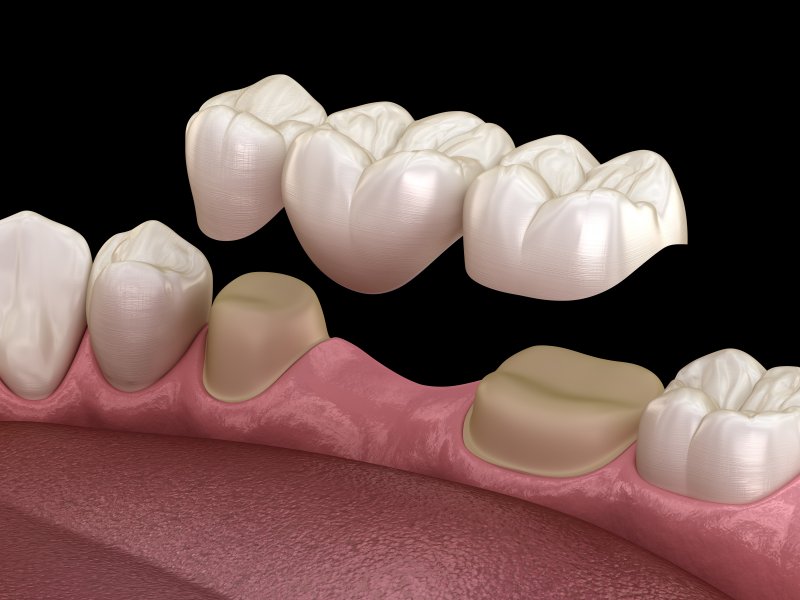What Causes Dental Bridges to Fail?
August 18, 2022

If you’re missing one or more of your teeth, tasks like eating, speaking clearly, and smiling with confidence can be difficult to do. The good news is that there are a variety of tooth replacement options out there that can restore the function and appearance of your smile. Dental bridges are an excellent option for replacing one or more consecutive missing teeth, but they aren’t indestructible. Read on to learn some reasons why dental bridges can fail as well as some steps you can take to avoid them.
Poor Oral Hygiene
The most common reason why a dental bridge may fail is poor oral hygiene. If you have a bridge, you need to be very thorough when it comes to your dental hygiene regimen. If you aren’t brushing twice and flossing once each day, you are putting your dental bridge and the rest of your smile at risk.
Insufficient Abutment Teeth
Your abutment teeth are the ones that are supporting your dental bridge. However, if they aren’t healthy enough, there will be issues. If there is an uneven distribution of the bridge on the surrounding teeth due to one of them not being supportive enough, it can result in trauma and dental bridge failure.
Bad Habits
Many different bad habits could put your dental bridge at risk. Some common ones include nail biting, chewing on pens or pencils, eating sticky and tough foods, teeth grinding and clenching, and munching down on ice cubes. If you have one or more of these habits, a bridge failure could be in your future.
Poor Jawbone Support
When your jawbone isn’t sufficient enough, neither will your abutment teeth. They will be much less likely to be able to support a dental bridge. With poor bone support comes a greater chance that your bridge will fail, and you will need to opt for another tooth replacement option.
Skipping Dental Checkups
When you go to your regular dental visits, your dentist checks to ensure that your bridge is in good shape. Your hygienist will clear away plaque and tartar buildups that could lead to decay of the surrounding teeth and gum disease. Both of these issues can cause a dental bridge failure.
Dental bridges aren’t indestructible, but they can last up to 15 years if you care for them properly. By taking steps every day to keep them in good shape, you will be showing off your restored smile for many years to come.
About the Author
Dr. Mark Gerome earned his dental doctorate from The Ohio State University College of Dentistry and has been working in the field for well over two decades! He is committed to continuing education to keep his knowledge and skills sharp, and he is a proud member of numerous professional organizations, including the American Dental Association, Ohio Dental Association, and the Cincinnati Dental Society. To learn more about dental bridges or to schedule an appointment at his office in Loveland, visit his website or call (513) 677-1349.

